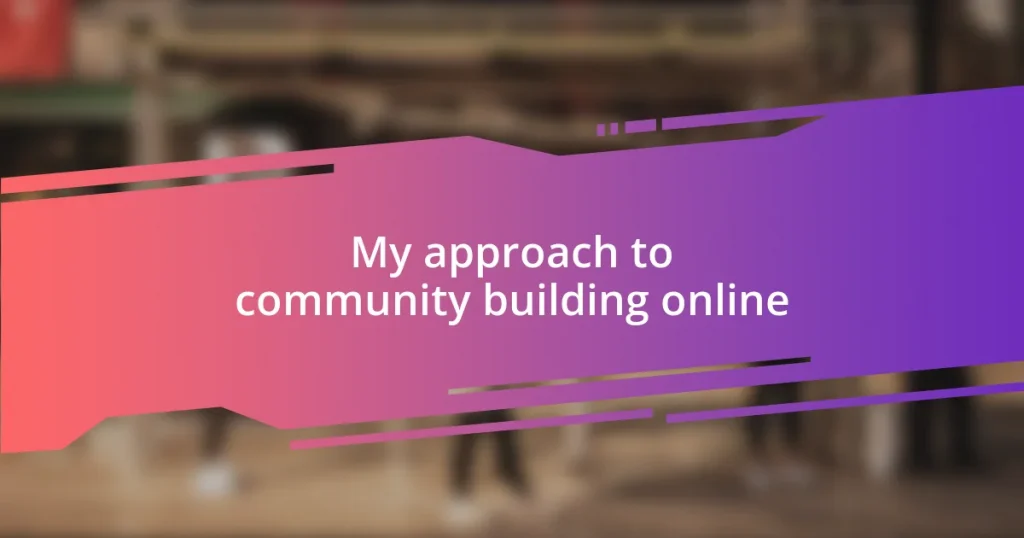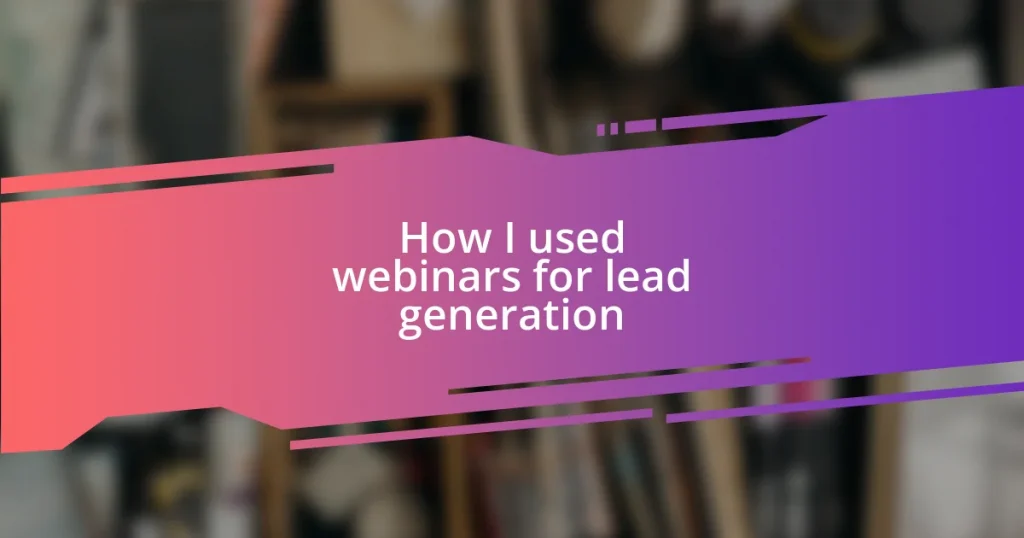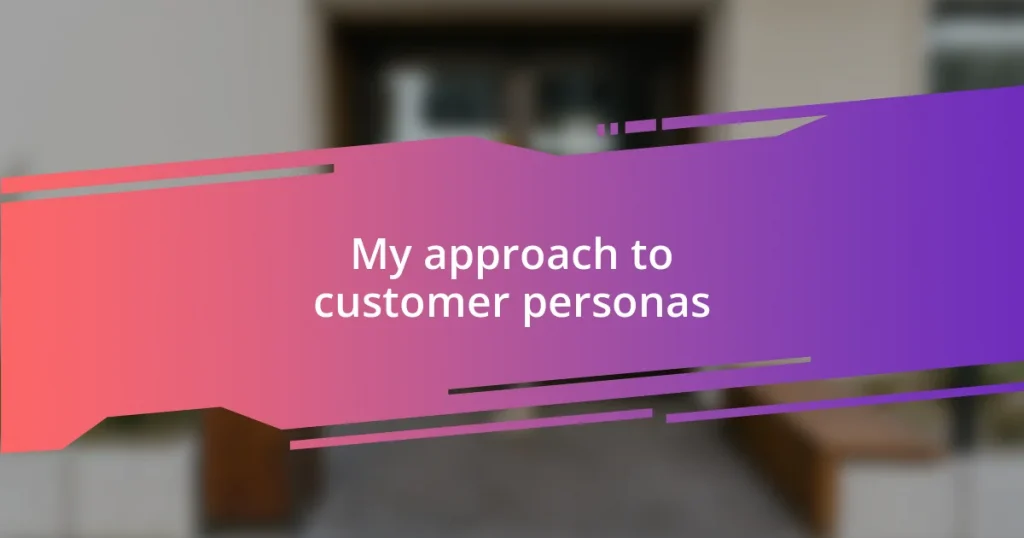Key takeaways:
- Ethical marketing is rooted in honesty, transparency, and respect for consumer privacy, which helps build trust and customer loyalty.
- Brands that align their marketing strategies with social and environmental values strengthen their community connections and improve their reputation.
- Open communication, empathy, and community engagement are crucial for fostering authentic relationships and overcoming challenges with consumers.
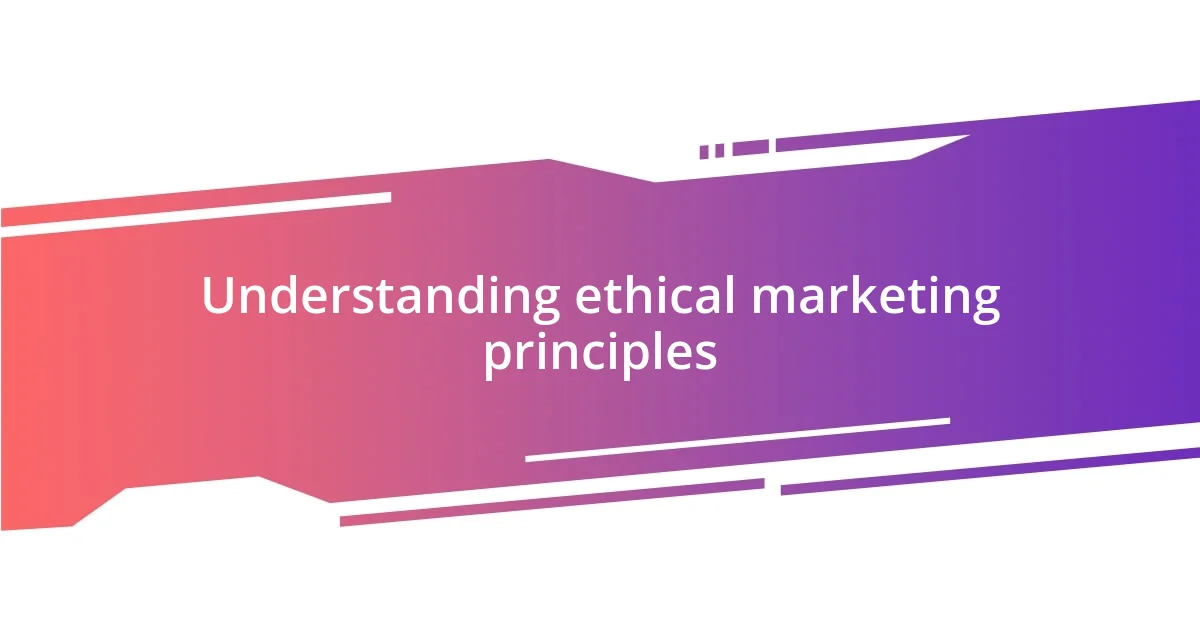
Understanding ethical marketing principles
Ethical marketing principles are built on the foundation of honesty, fairness, and responsibility. I remember a time when I was approached by a brand that wanted to use exaggerated claims about their product’s benefits. It was a significant moment for me, realizing that ethical marketing isn’t just about obeying laws; it’s about maintaining trust with customers. Wouldn’t you agree that trust is the most valuable currency in a marketplace?
Another critical aspect of ethical marketing is respect for consumer privacy. I once worked with a company that mismanaged customer data, leading to a considerable backlash. This experience taught me how essential it is to prioritize transparency and protect customers’ personal information. Have you ever noticed how brands that respect your privacy tend to earn your loyalty?
Lastly, embracing sustainability in marketing practices is increasingly vital. I’ve seen firsthand the positive impact of highlighting sustainable practices in promotions and how they resonate with conscientious consumers. Isn’t it intriguing how aligning your marketing strategies with social and environmental values can not only enhance your brand image but also foster deeper connections with your audience?
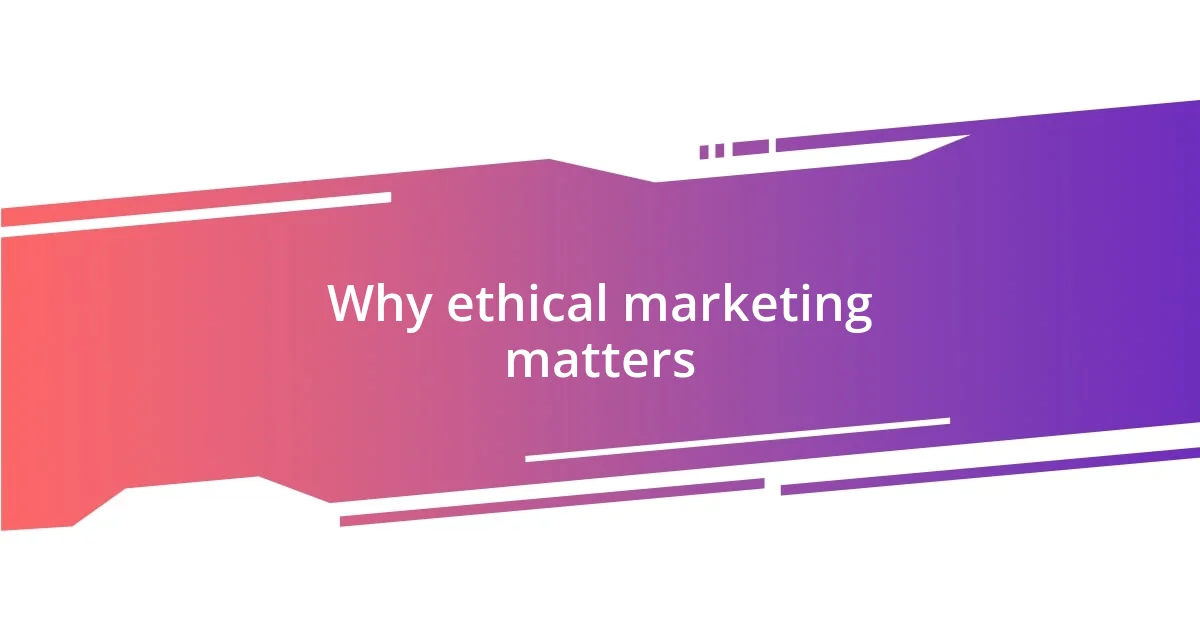
Why ethical marketing matters
Ethical marketing matters because it builds lasting relationships between brands and consumers. I’ve experienced the power of authenticity in my interactions with customers. When a brand genuinely aligns its values with its marketing approach, it transcends mere transactions and fosters a community. This connection is something I cherish; have you ever felt a brand truly understands you?
Moreover, ethical marketing drives consumer decision-making. I once ran a campaign that emphasized our commitment to social causes, and I was amazed at how many consumers chose our products over competitors last minute. This shift in preference highlighted that people are increasingly inclined to support brands that demonstrate a genuine commitment to their ethical promises. Isn’t it reassuring to know that your purchasing decisions can have a ripple effect on the community?
It’s also important to recognize the role of ethical marketing in promoting transparency and accountability. For instance, I remember being part of a brand that faced scrutiny over its sourcing practices. Communicating openly about our supply chain not only regained consumer trust but also inspired our team to uphold higher ethical standards. Have you noticed how transparency can create a more engaged and informed customer base?
| Benefits of Ethical Marketing | Impacts on Businesses |
|---|---|
| Strengthens customer loyalty | Increased repeat business |
| Enhances brand reputation | Attracts new customers |
| Encourages socially responsible behavior | Contributes to long-term success |
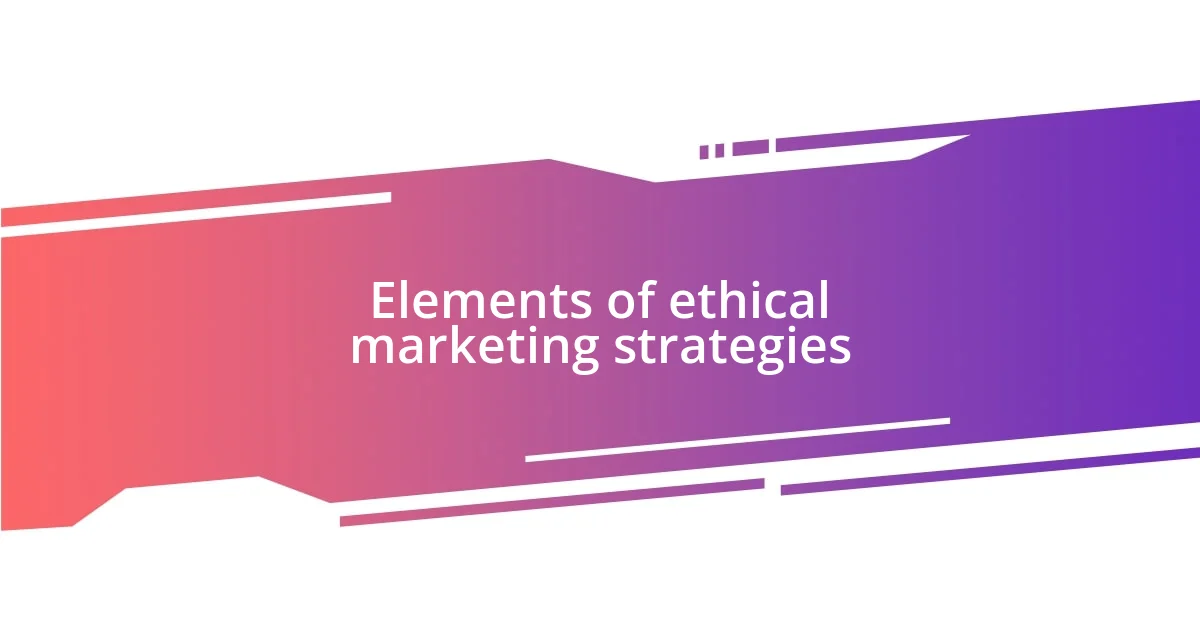
Elements of ethical marketing strategies
I believe that understanding the core elements of ethical marketing strategies is crucial for any brand aiming to establish meaningful connections with its audience. It strikes me that incorporating honesty at every touchpoint with customers not only fosters trust but also differentiates brands in a crowded marketplace. I recall working with a startup that proudly based their entire marketing campaign on transparency, which resonated powerfully with their audience. This experience reinforced my view that when brands commit to authenticity, they pave the way for loyalty.
Here are some essential elements of ethical marketing strategies:
- Honesty: Always provide truthful information about products and services.
- Transparency: Be open about business practices, including pricing and sourcing.
- Responsibility: Acknowledge the impact of marketing practices on society and the environment.
- Respect for Consumer Rights: Ensure informed consent and protect customer data.
- Inclusivity: Create marketing strategies that are respectful and considerate of diverse audiences.
I often reflect on the concept of sustainability in marketing. Part of my role involved collaborating with brands that focused on eco-friendly practices. The emotional payoff I felt from presenting campaigns that highlighted their commitment to the environment was profound. It was amazing to witness consumers not only engaging with these brands but also sharing their stories and experiences. This taught me that sustainability isn’t merely a marketing tactic; it’s a powerful principle that can drive authentic connections.
Incorporating these elements can fundamentally reshape how brands interact with their consumers, leading to a marketplace that values not just profit, but ethical integrity and social responsibility.
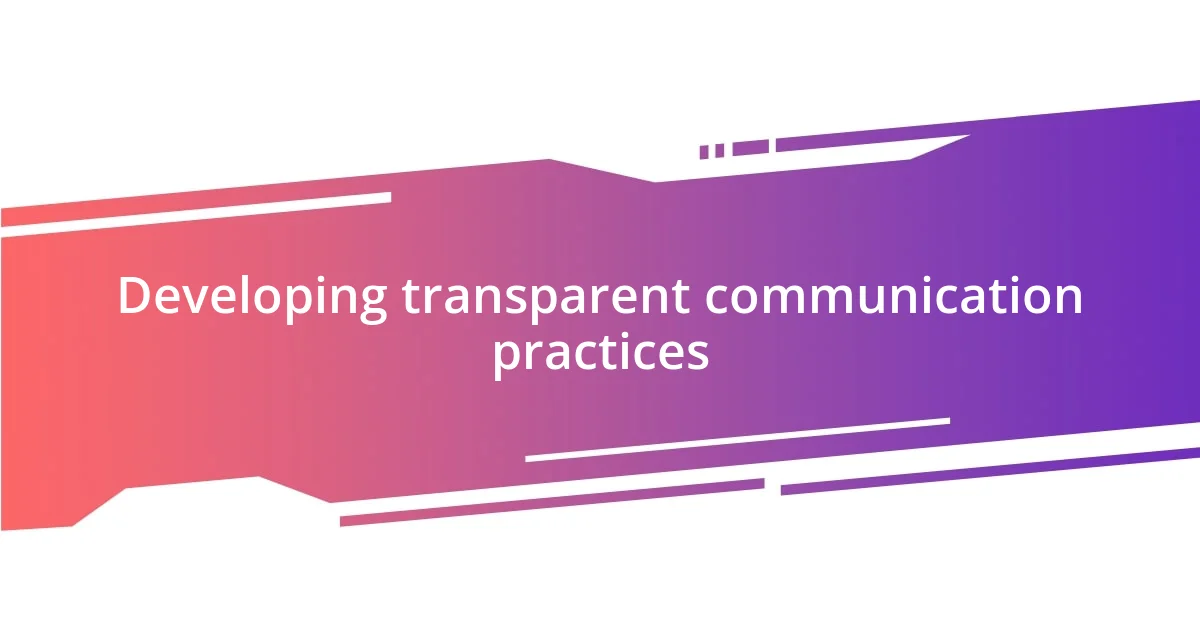
Developing transparent communication practices
Transparent communication practices are essential to building authentic relationships with consumers. I remember when I was involved in a project where clarity in messaging was our top priority. We detailed every aspect of our product, from sourcing to pricing, and the positive feedback was overwhelming. Customers appreciated knowing exactly what they were buying, don’t you think that kind of openness fosters a stronger bond?
Implementing transparent communication means being forthcoming about potential shortcomings as well. I learned this when we had to address a product delay; instead of hiding it, we chose to inform our customers. The response was surprisingly supportive—people valued our honesty, and it reminded me of how much consumers appreciate being in the loop. Isn’t it refreshing when companies own up to their challenges?
Lastly, I can’t stress enough the importance of continuously engaging with your audience. I’ve used social media not just for promotion but as a two-way street for dialogue. For instance, after sharing a behind-the-scenes look at our production process, our followers opened up about their thoughts and concerns. This interaction didn’t just elevate our trust factor; it made me realize the true power of communication. How often have you engaged with a brand and felt that your voice mattered?
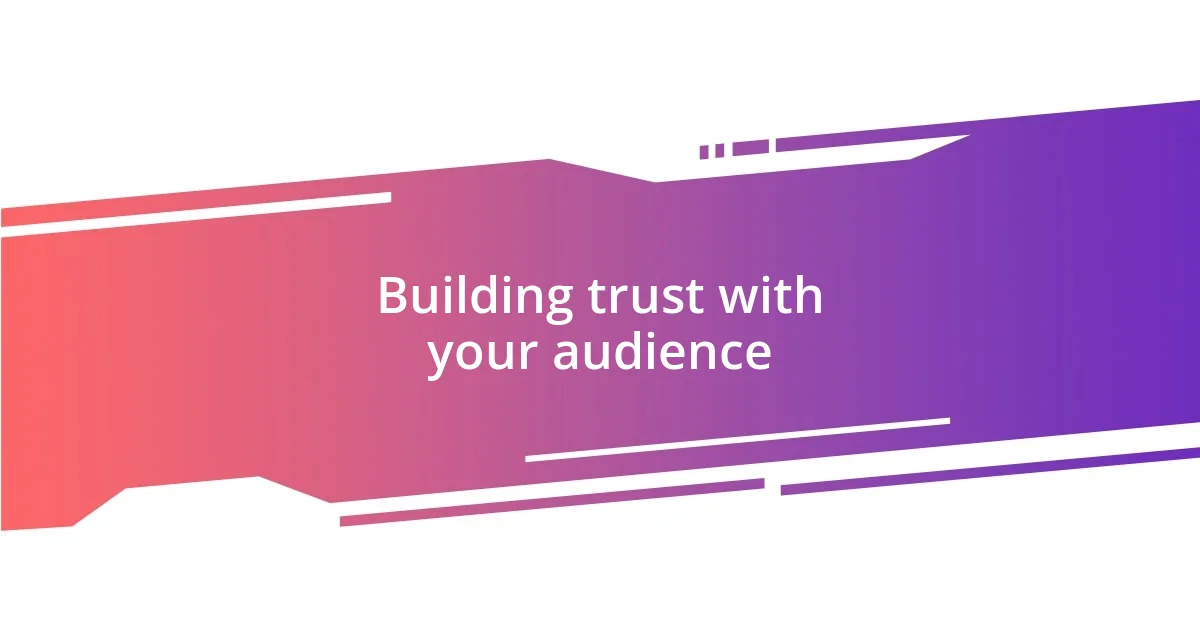
Building trust with your audience
Building trust is more about actions than words. One of my most eye-opening experiences was when a brand I worked with decided to share customer testimonials, complete with both positive and constructive feedback. I remember feeling a bit anxious, wondering if transparency would scare off potential customers. Instead, the opposite happened. People appreciated our honest approach, and it sparked a deeper connection with both new and existing customers. Don’t you think that genuine feedback can truly resonate more than polished marketing jargon?
Another aspect I’ve found effective is consistently showing empathy for your audience. For example, during a campaign launch, we faced unexpected backlash regarding our messaging. I decided to take to social media and address the issue head-on, acknowledging our misstep and inviting open dialogue. It was nerve-wracking, but the response was incredibly humbling. Consumers not only engaged with our response; they expressed gratitude for being heard. Isn’t it intriguing how vulnerability can transform a potential crisis into an opportunity for growth?
Lastly, I believe that nurturing community is at the heart of building trust. I once organized an online event where customers could ask questions about our processes and values directly. I was amazed at the level of participation—people genuinely wanted to connect. The energy in that virtual space was palpable, and I walked away feeling that our brand wasn’t just a business, but a community. How powerful is that—a shared space where your audience feels they truly belong?











